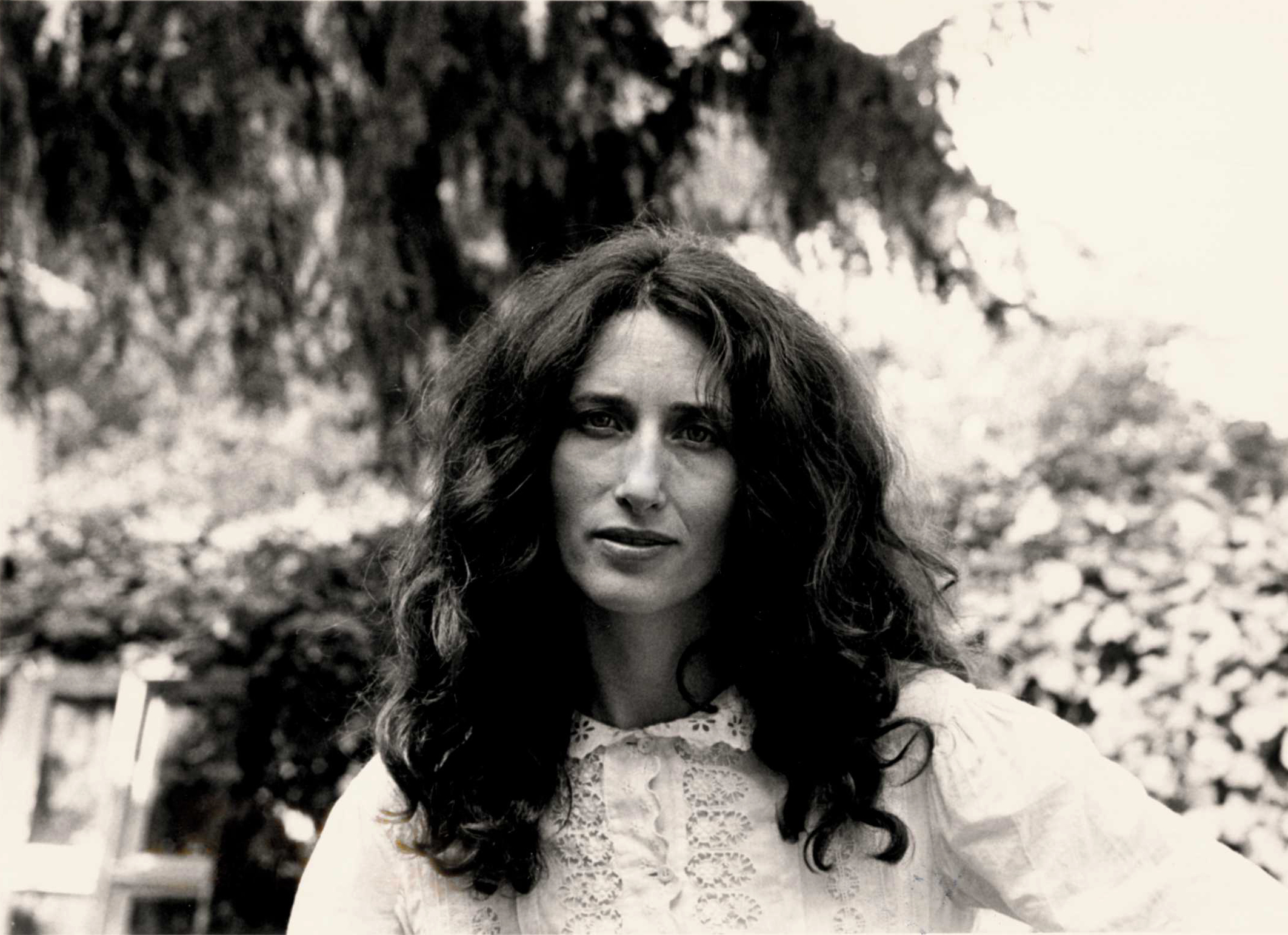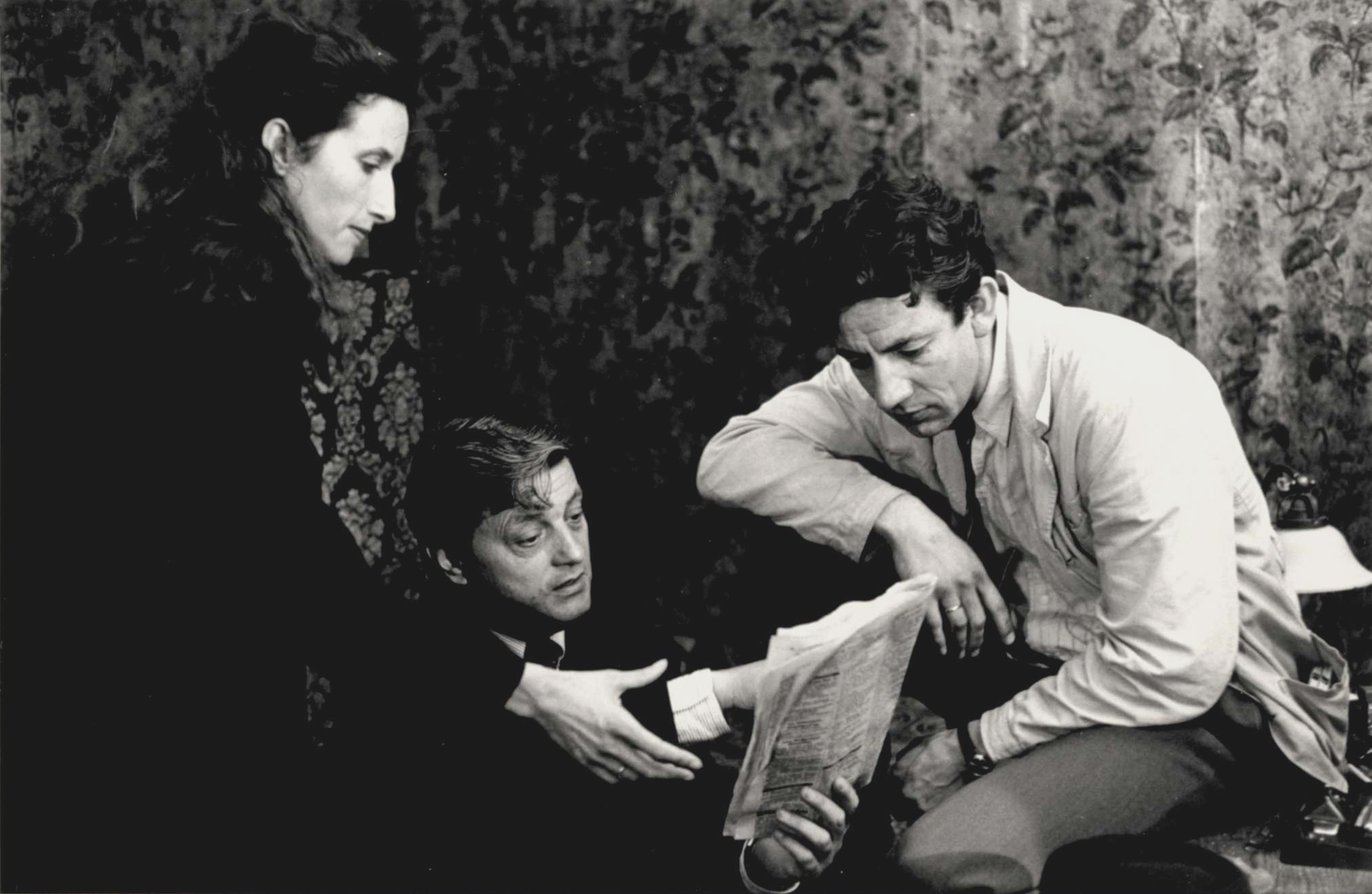Vibeke Løkkeberg comes from Bergen. She made her acting debut in Pål Løkkeberg’s Liv (1967) and also played the lead in the same director’s Exit (1970). In the 1970s, Vibeke Løkkeberg directed several short films, including Abort (1972) and Regn (1975). The first feature she directed was The Revelation/Åpenbaringen (1977). This was followed by Kamilla/Løperjenten (1981), Vilde, the Wild One/Hud (1986), Måker (1991) and Der gudene er døde (1993). The documentary Tears of Gaza (2010) was Løkkeberg’s last film. Løkkeberg wrote, directed and acted in all the five above-mentioned feature films, and she has also written several novels. In 2015 she was presented with the Amanda Committee Honorary Award at the Norwegian International Film Festival in Haugesund.
Through her films, Løkkeberg has proven herself a keen observer of the fact that life can be quite different depending on whether you’re a man or a woman. Several of her films thematize specific female experiences and also look at the less idyllic side of the nuclear family from the child’s point of view. In terms of style the films are broad in scope, from the modernist, through the grandiosely melodramatic to the documentary. Løkkeberg has received relatively extensive media attention throughout her career. While some have applauded her work, others have been more critical.
The Revelation (1977) can be regarded as Løkkeberg’s boldest film, both in terms of theme and style. It portrays a middle-aged woman’s experience of an existential crisis, with death constantly suggested as a possible way out. The film links her mental state to a specific woman’s role, the stay-at-home housewife, without an education, who lives through others and sometimes consequently feels that she doesn’t exist. The Revelation can readily be seen as modernist, with the use of dream-like scenes, repetitions, and elliptical transitions in space and time. The film caused a media storm in Norway known as ‘rumpefeiden’, or ‘the butt feud’. Many writers expressed a deep-felt disgust over the film’s linking of woman, sexuality and death, and over showing the main actor Marie Takvam’s naked body. Others, however, deemed The Revelation important in relation to women’s politics, and a raft of alternative screenings were organized and followed with discussion sessions.
Kamilla is generally regarded as Løkkeberg’s greatest film success, acclaimed by critics and audiences alike. It is also far more conventional than her debut feature. Set in post-war Norway, it investigates the disintegration of the nuclear family. The particular aspect that makes the film something more than a run-of-the-mill triangle drama is that it constantly shows us the child’s perspective. It is seven-year-old Kamilla’s perception of her parents’ behaviour that is central, while the the despair and conflicts of the adults are seen as alien. The film can largely be placed within a melodramatic tradition, partly due to its focus on emotional crises. Kamilla won the Norwegian Film Critics’ Award in 1982. Måker, a Chekhov-inspired drama set in the early 20th century, also looks at the relationship between children and parents, but received a more tepid reception than Kamilla. This could be because Måker is heavily stylized – many of the takes appear like tableaux, the film has a weak narrative progression and doesn’t really invite the viewer to empathy and identification. Moreover, it is quite insistent in linking art, insanity, suffering and death.
While The Revelation more subtly shows the potential consequences of a historically specific woman’s role, Vilde, the Wild One (1986) directly and plentifully shows male assaults, be they sexually, financially or religiously motivated. Vilde can be characterized as a romantic drama of fate, or a melodrama with tragic implications. The film is set in a small coastal village in Western Norway in 1885. The central character is Vilde, a young woman who is forced into ruin because she opposes the demands of an extremely patriarchal community. Stylistically, the film can be called expressionist. The mise-en-scène – the mountains, the ocean, the wind, the light – and Arne Nordheim’s music become significant conveyors of meaning. Vilde provoked controversy, partly since it so explicitly focuses on incest. While some defended the film from a feminist perspective, some critics decried it as scandalous and trashy.
With her feature film Der gudene er døde (1993) and the documentary Tears of Gaza (2010), Løkkeberg looks at contemporary, internationally recognized war situations. The former looks at what was then the ongoing war in the former Yugoslavia. Various parties, including Bergen Kino, deemed the film to be of such low quality that it was never released at cinemas. It was also perhaps a rather impossible task to make a feature film about the tragedies in former Yugoslavia. It is, for example, problematic that the female lead is portrayed as a sexually desirable object in the middle of the miseries of war. The film is also characterized by unmotivated montages.
Tears of Gaza (2010) is referred to as an anti-war film, interweaving footage of attacks on Gaza civilians with stories from survivors. The film received a lot of media attention, partly as it was seen as anti-Israeli propaganda. It world premièred at the Toronto Film Festival in 2010, and was screened at several international film festivals.
Tone Kolbjørnsen
(Translated by Matt Bibby)
Basic info
Main profession: Director
Born: 1945
Active: 1967-
Filmography
Regi:
Gazas tårer (2010)
Der gudene er døde (1993)
Måker (1991)
Hud (1986)
Løperjenten (1981)
Åpenbaringen (1977)
Regn (1975)
Tatere (1973)
En far skal barnet ha (1973)
Abort (1972)
Manus:
Gazas tårer (2010)
Der gudene er døde (1993; sammen med Zelmer Zelnik)
Måker (1991; sammen med Terje Kristiansen)
Hud (1986; sammen med Terje Kristiansen)
Løperjenten (1981)
Åpenbaringen (1977; sammen med Terje Kristiansen)
Hva nå mann (1974; sammen med Terje Kristiansen)
Utfordringen (1972)
Liv (1967; sammen med Pål Løkkeberg)
Skuespiller:
Der gudene er døde (1993)
Måker (1990)
Hud (1986)
Høvdingen (1984)
Formynderne (1978)
Åpenbaringen (1977)
Utfordringen (1972)
Love is War (1970)
Exit (1970)
Liv (1967)
Awards
Æres-Amanda 2015
Gullprisen ved Filmfestivalen i Gaza 2010 for Gazas tårer
Menneskerettsprisen ved Al-Jazeera-festivalen 2010 for Gazas tårer
Ridder av Stella della Solidarieta italiana 2006
Filmkritikerprisen 1982 for Løperjenten
Gjest Baardsen-prisen for Løperjenten
Beste regi ved Filmfestivalen i San Remo for Åpenbaringen

